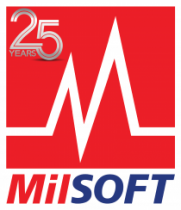Pliant Therapeutics Presents Idiopathic Pulmonary Fibrosis Biomarker Discovery Research at American Thoracic Society 2018 International Conference
Pliant Therapeutics Presents Idiopathic Pulmonary Fibrosis Biomarker Discovery Research at American Thoracic Society 2018 International Conference
SAN DIEGO, May 22, 2018 /PRNewswire/ -- Pliant Therapeutics, Inc. today presents at the American Thoracic Society 2018 International Conference a new approach to identify novel biomarkers to improve diagnosis, selection and assessment of treatments for Idiopathic Pulmonary Fibrosis (IPF). Company scientists and research collaborators successfully integrated tissue and plasma proteomics approaches to enhance detection of tissue-specific and circulating proteins related to the fibrotic lung disease.
Despite significant study, there are currently no biomarkers suitable for stratifying patients in clinical trials in IPF. This lack of adequate tools necessitates large and lengthy clinical trials that limit the pace at which new therapies can be evaluated and potentially brought to market. Biomarkers obtained from a blood test would also provide pharmacodynamic insights to pulmonologists to aid in the selection and monitoring of therapies for patients.
The pilot study conducted by researchers from Pliant, the University of California San Francisco, and Proteome Sciences utilized samples from individuals receiving pirfenidone treatment and a control group. The integrated discovery method enhanced the quantification of tissue and plasma proteins and successfully revealed exploratory biomarkers.
"This integrated approach helped us enhance the signal of tissue derived proteins in plasma and improved the identification of circulating proteins that may ultimately provide insight into IPF. We're eager to continue our research to advance our understanding of IPF and discover new treatments for this devastating disease," Scott Turner, Ph.D., vice president of translational sciences at Pliant Therapeutics.
"This successful proof-of-concept study is a first step in providing an enhanced and reproducible approach to IPF biomarker discovery," said Paul J. Wolters, M.D., pulmonologist and director of biological research for the Interstitial Lung Disease Program at the University of California San Francisco. "Our collaboration plans to study larger cohorts with the goal of identifying circulating markers that correlate with lung function and drug response, to significantly improve the treatment of patients."
ATS 2018 Abstracts
A2232
Proteomic Analysis of Plasma and Tissue Samples for the Identification of Pharmacodynamic Biomarkers in IPF
M. Decaris, I. Pike, P. J. Wolters, M. Bremang, R. Gaster, P. Andre, S. Turner
May 20, 2018, 11:15 AM - 1:00 PM Pacific
Area G (Hall A-B2, Ground Level), San Diego Convention Center
A5771
A Novel Method for Discovery of Peripheral Blood Biomarkers in Idiopathic Pulmonary Fibrosis Using Extensive Depletion and TMTcalibrator(TM) Tissue-Enhanced Plasma Proteomics
I. Pike, M. Bremang, P. J. Wolters, R. Gaster, S. Turner, M. Decaris
May 22, 2018, 11:15 AM - 1:00 PM Pacific
Area D (Hall A-B2, Ground Level), San Diego Convention Center
About Pliant Therapeutics
Pliant Therapeutics is a biotechnology company unraveling and targeting the key biological pathways driving fibrosis. By leveraging its powerful product discovery engine, Pliant's mission is to halt progression and reverse disease, and ultimately to restore organ function. Founded by a group of seasoned experts in fibrosis biology and medicinal chemistry, Pliant was launched in 2016 by Third Rock Ventures and is headquartered in Redwood City, California. For more information, please visit www.pliantrx.com.
CONTACT: Cambria Fuqua, Canale Communications, (619) 849-5390, cambria@canalecomm.com
View original content with multimedia:http://www.prnewswire.com/news-releases/pliant-therapeutics-presents-idiopathic-pulmonary-fibrosis-biomarker-discovery-research-at-american-thoracic-society-2018-international-conference-300652293.html
SOURCE Pliant Therapeutics, Inc.



